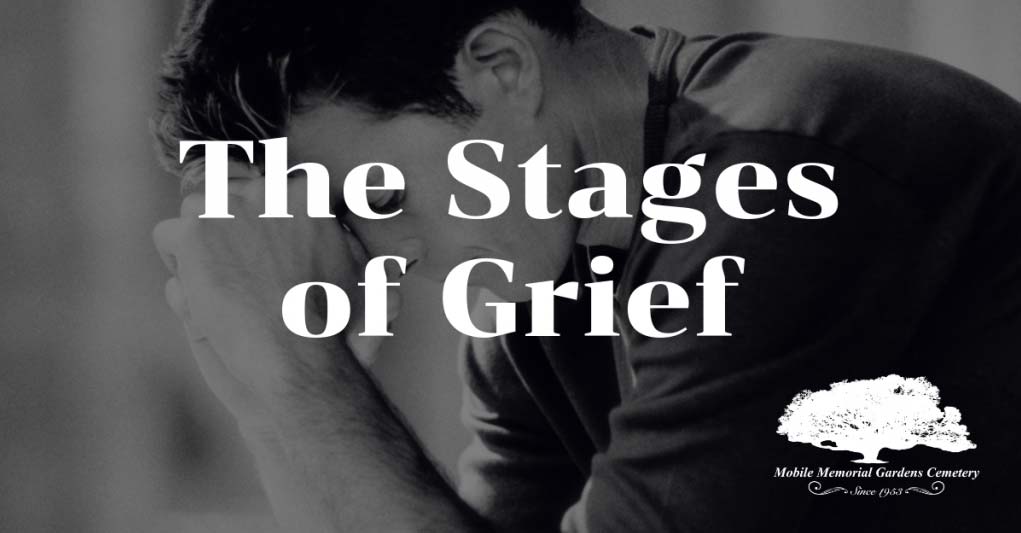
There is said to be five stages of grief: denial and isolation, anger, bargaining, depression and acceptance. These stages don’t occur in a certain order and are different for everyone. Some people experience certain periods of grief for a longer amount of time than others and in a higher level of intensity. For instance, some may experience the feeling of anger longer than others. When it comes to acceptance, many people never fully experience this stage because dealing with the loss of a loved one is hard to fully accept each day.
Denial and Isolation
When you learn about a terminal illness or death of a loved one, it is easy to deny the situation. Many times you will hear, or say, “this can’t be happening” – which is a normal reaction. Denial is a defense mechanism that helps to numb the shock that accompanies loss. It’s easy to block out the facts and hide from what is truly going on. Denial is usually a temporary response that accompanies you through the first period of pain experienced at the initial loss of a loved one.
Anger
As denial tends to wear off, reality starts to settle in and the pain along with it. At this time, it can be an intense feeling of emotions and rather than to feel vulnerable, many people feel angry. Anger could be directed at inanimate objects, family or the deceased loved one. Many times, you can feel guilty for being angry – which in turn can make you more angry.
Bargaining
It’s common to find yourself bargaining when feeling helpless. Many people will find themselves saying things like: “If only we had gotten medical help sooner” or “If only we had done more or tried harder to help.” Guilt commonly accompanies bargaining because you wish you had done so many things differently to help save your loved one.
Depression
There are two types of depression that a person may feel after a loss. One type is where a person may feel sadness and regret. They may worry about funeral costs or how they haven’t spent enough time with those that need them. This type of depression can be eased with kind words from others and reassurance from loved ones. The second type of depression is more private and quiet as you prepare to tell your loved one goodbye. While words may not help, a hug may help ease this feeling.
Acceptance
Acceptance tends to be the final stage of grief. Many people say acceptance is a stage they work on every single day. Others may never reach the stage of acceptance because it can be hard to accept a sudden, unexpected death. Acceptance does not mean that a person is happy, it just means you are at peace with their death.
Coping with loss and grief is a personal journey that each person will experience differently. Knowing the steps of grief will help you to understand your emotions and how you can be there for those when they are grieving. Remember there is no right or wrong way to grieve. Everyone is different and some never fully accept that their loved one is gone.
Mobile Memorial Gardens Cemetery is a non-profit cemetery located at 6100 Three Notch Road in Mobile, Alabama. We are here to help those who are in need and make it a priority to preserve the memories of your loved ones in a dignified, honorable and comfortable place. Visit us online at www.mobilememorialgardens.org or on our Facebook page. If you have suffered a loss and would like to speak to us to help deal with your grief, please call us at 251-661-1333.
Pre-Need Planning | Ground Burial | Cremation Burial | Memorial & Monuments
Phone: 251-661-1333
Email: info@mobilememorialgardens.com
Address: 6100 Three Notch Rd.
Mobile, AL 36619
© 2025 Mobile Memorial Gardens Cemetery